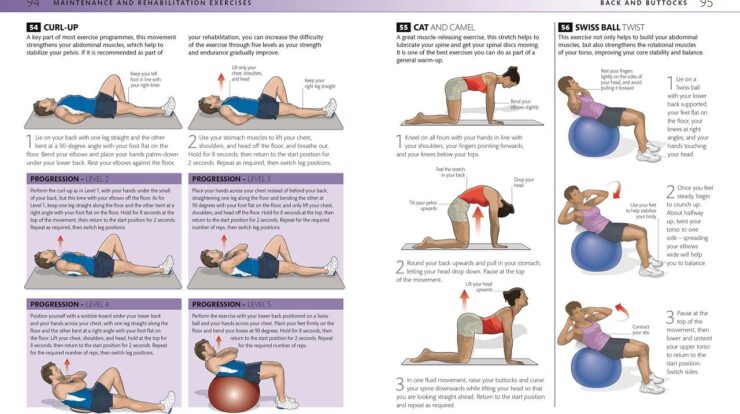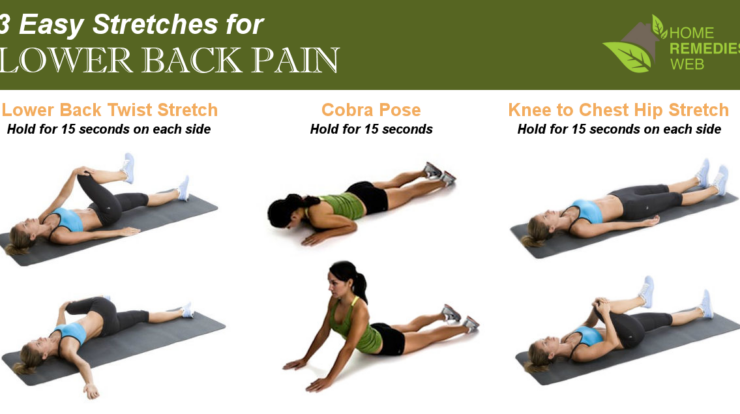
Suffering from gum disease? Don’t despair! In this guide, we’ll explore how to cure gum disease without a dentist. From natural remedies to lifestyle changes, we’ve got you covered. Get ready to say goodbye to gum pain and hello to a healthier smile.
Gum disease, also known as periodontal disease, is a common problem that can affect people of all ages. It’s caused by bacteria that build up on the teeth and gums, leading to inflammation, bleeding, and even tooth loss. While it’s usually treated by a dentist, there are several effective ways to cure gum disease at home.
Home Remedies for Gum Disease
Gum disease, also known as periodontal disease, is a common condition that affects the gums and supporting structures of the teeth. It can range from mild gingivitis, which causes inflammation and bleeding of the gums, to severe periodontitis, which can lead to tooth loss.
While regular dental checkups and professional cleanings are essential for maintaining good oral health and preventing gum disease, there are also several home remedies that can help to reduce inflammation, kill bacteria, and promote healing.
Did you know that there are a few ways to cure gum disease without a dentist? It’s true! If you’re looking for a natural way to treat your gum disease, there are a few things you can do. One of the best ways to cure gum disease without a dentist is to follow these tips . Gum disease is a common problem that can be caused by a number of factors, including poor oral hygiene, smoking, and certain medical conditions.
If you’re experiencing any of the symptoms of gum disease, such as bleeding gums, swelling, or pain, it’s important to see a dentist as soon as possible. However, if you’re looking for a natural way to treat your gum disease, there are a few things you can do.
Salt Water Rinse
Salt water is a natural antiseptic and antibacterial agent that can help to reduce inflammation and kill bacteria in the mouth. To make a salt water rinse, dissolve 1/2 teaspoon of salt in 8 ounces of warm water. Rinse your mouth with the solution for 30 seconds, then spit it out.
Repeat several times a day.
If you’re looking for a way to cure gum disease without a dentist, you’re in luck. There are a number of natural remedies that can help to reduce inflammation and pain, and even promote healing. For more information on how to cure gum disease without a dentist, check out this article: How to Cure Gum Disease Without a Dentist .
Baking Soda Rinse
Baking soda is another natural antiseptic and antibacterial agent that can help to neutralize acids in the mouth and reduce inflammation. To make a baking soda rinse, dissolve 1/2 teaspoon of baking soda in 8 ounces of warm water. Rinse your mouth with the solution for 30 seconds, then spit it out.
Repeat several times a day.
Hydrogen Peroxide Rinse
Hydrogen peroxide is a powerful antiseptic and antibacterial agent that can help to kill bacteria and reduce inflammation. To make a hydrogen peroxide rinse, mix 1 part 3% hydrogen peroxide with 2 parts water. Rinse your mouth with the solution for 30 seconds, then spit it out.
If you’re looking for ways to cure gum disease without a dentist, there are several home remedies you can try. These include practicing good oral hygiene by brushing and flossing regularly, using mouthwash, and eating a healthy diet. For more detailed information on how to cure gum disease without a dentist, check out this article.
Do not swallow the solution.
Tea Tree Oil Rinse
Tea tree oil is a natural antiseptic and antibacterial agent that has been shown to be effective against the bacteria that cause gum disease. To make a tea tree oil rinse, add 2-3 drops of tea tree oil to 8 ounces of warm water.
Rinse your mouth with the solution for 30 seconds, then spit it out. Do not swallow the solution.
Aloe Vera Rinse
Aloe vera is a natural anti-inflammatory agent that can help to soothe and heal inflamed gums. To make an aloe vera rinse, mix 1/4 cup of aloe vera gel with 8 ounces of warm water. Rinse your mouth with the solution for 30 seconds, then spit it out.
Repeat several times a day.
Oil Pulling
Oil pulling is an ancient Ayurvedic practice that involves swishing oil in the mouth for 15-20 minutes to remove bacteria and toxins. Coconut oil is a popular choice for oil pulling, as it has antibacterial and anti-inflammatory properties. To oil pull, swish 1 tablespoon of coconut oil in your mouth for 15-20 minutes, then spit it out.
Do not swallow the oil.
| Remedy | Benefits | Drawbacks |
|---|---|---|
| Salt Water Rinse |
|
|
| Baking Soda Rinse |
|
|
| Hydrogen Peroxide Rinse |
|
|
| Tea Tree Oil Rinse |
|
|
| Aloe Vera Rinse |
|
|
| Oil Pulling |
|
|
Lifestyle Changes for Gum Health
Gum disease is a common problem that can lead to serious health issues if left untreated. While there are a number of medical treatments available, there are also a number of lifestyle changes you can make to help prevent and manage gum disease.
Smoking
Smoking is one of the worst things you can do for your oral health. It damages the gums and other tissues in the mouth, making them more susceptible to infection. If you smoke, quitting is the best thing you can do for your overall health, including your oral health.
Poor Oral Hygiene
Poor oral hygiene is another major contributing factor to gum disease. When you don’t brush and floss your teeth regularly, plaque and tartar build up on the teeth and gums. This can irritate the gums and cause them to become inflamed.
Over time, this inflammation can lead to gum disease.
Certain Medications
Some medications can also contribute to gum disease. These include steroids, chemotherapy drugs, and certain antidepressants. If you are taking any medications, talk to your doctor about whether they may be contributing to your gum disease.
Improving Oral Hygiene Habits
The best way to prevent and manage gum disease is to practice good oral hygiene habits. This includes:
- Brushing your teeth twice a day with a soft-bristled toothbrush.
- Flossing your teeth once a day.
- Using an antiseptic mouthwash.
- Seeing your dentist for regular checkups and cleanings.
Lifestyle Changes
In addition to practicing good oral hygiene habits, there are a number of lifestyle changes you can make to help prevent and manage gum disease. These include:
- Eating a healthy diet that is low in sugar and processed foods.
- Getting regular exercise.
- Managing stress.
- Getting enough sleep.
By making these lifestyle changes, you can help prevent and manage gum disease and improve your overall health.
Over-the-Counter Treatments: How To Cure Gum Disease Without A Dentist

Over-the-counter (OTC) medications can provide temporary relief from gum disease symptoms, but they are not a substitute for professional dental care. OTC medications can help reduce inflammation, pain, and bleeding, but they cannot cure gum disease.
There are two main types of OTC medications for gum disease: antiseptics and antibiotics.
Antiseptics
Antiseptics kill bacteria that cause gum disease. They are available in a variety of forms, including mouthwashes, gels, and lozenges.
- Chlorhexidine is a common antiseptic used to treat gum disease. It is effective at killing bacteria and reducing inflammation.
- Cetylpyridinium chloride is another antiseptic used to treat gum disease. It is less effective than chlorhexidine, but it is also less likely to cause side effects.
Antibiotics
Antibiotics are used to treat gum disease that is caused by bacteria. They are available in both oral and topical forms.
- Amoxicillin is a common antibiotic used to treat gum disease. It is effective at killing bacteria and reducing inflammation.
- Metronidazole is another antibiotic used to treat gum disease. It is effective at killing bacteria that are resistant to other antibiotics.
It is important to use OTC medications for gum disease according to the directions on the package. Using too much or too little of a medication can be harmful.
OTC medications for gum disease can be effective in reducing symptoms, but they are not a substitute for professional dental care. If you have gum disease, it is important to see a dentist for regular checkups and cleanings.
| Medication | Active Ingredient | Potential Side Effects |
|---|---|---|
| Chlorhexidine | Chlorhexidine | Staining of teeth, bitter taste |
| Cetylpyridinium chloride | Cetylpyridinium chloride | Nausea, vomiting, diarrhea |
| Amoxicillin | Amoxicillin | Rash, hives, diarrhea |
| Metronidazole | Metronidazole | Nausea, vomiting, headache |
Natural Supplements for Gum Health

Gum disease, also known as periodontal disease, is a common problem that affects the gums and the supporting structures of the teeth. It can be caused by poor oral hygiene, smoking, or certain medical conditions. While there are many different treatments for gum disease, some people may prefer to try natural supplements to improve their gum health.Certain
Gum disease is a common problem that can lead to serious health issues if left untreated. While it’s best to see a dentist for treatment, there are some things you can do at home to help cure gum disease without a dentist.
One of the most effective things you can do is to practice good oral hygiene. This includes brushing your teeth twice a day, flossing once a day, and using a mouthwash. You can also try using a saltwater rinse to help reduce inflammation and kill bacteria.
If you have severe gum disease, you may need to take antibiotics or undergo surgery. However, if you catch it early, you can often cure gum disease without a dentist by following these simple steps. Learn more about how to cure gum disease without a dentist .
vitamins and minerals are essential for maintaining healthy gums. These include vitamin C, which helps to strengthen the connective tissue in the gums, and vitamin D, which helps to regulate the immune system. Other important nutrients for gum health include calcium, phosphorus, and magnesium.There
are a number of different natural supplements that may be beneficial for gum disease. These include:
- Vitamin C: Vitamin C is a powerful antioxidant that helps to protect the gums from damage. It can be found in citrus fruits, leafy green vegetables, and tomatoes.
- Vitamin D: Vitamin D is essential for maintaining a healthy immune system. It can be found in fatty fish, eggs, and fortified milk.
- Calcium: Calcium is necessary for strong teeth and bones. It can be found in dairy products, leafy green vegetables, and fortified cereals.
- Phosphorus: Phosphorus is another important mineral for bone health. It can be found in meat, poultry, fish, and dairy products.
- Magnesium: Magnesium helps to relax the muscles in the gums. It can be found in leafy green vegetables, nuts, and seeds.
It is important to talk to your doctor or dentist before taking any supplements, as some supplements may interact with medications or have other side effects.
Alternative Therapies for Gum Disease
Alternative therapies offer potential remedies for gum disease management. These therapies, such as acupuncture, herbal remedies, and oil pulling, may complement conventional treatments.
Acupuncture
Acupuncture involves inserting thin needles into specific points on the body. This technique aims to stimulate the body’s natural healing response and reduce inflammation. Studies suggest acupuncture may alleviate gum disease symptoms, such as bleeding and swelling.
Herbal Remedies, How to cure gum disease without a dentist
Various herbal remedies possess anti-inflammatory and antimicrobial properties. For instance, green tea extract, containing catechins, may inhibit the growth of bacteria that cause gum disease. Myrrh, with its antiseptic qualities, can help reduce inflammation and promote healing.
Oil Pulling
Oil pulling, an ancient Ayurvedic practice, involves swishing a small amount of oil in the mouth for 10-15 minutes. This technique is believed to remove toxins and bacteria from the mouth, potentially reducing gum inflammation and bleeding.
| Therapy | Potential Benefits | Contraindications |
|---|---|---|
| Acupuncture | – Reduces inflammation
|
– May not be suitable for people with bleeding disorders or skin infections |
| Herbal Remedies (e.g., green tea extract, myrrh) | – Anti-inflammatory and antimicrobial properties
|
– Some herbs may interact with medications
|
| Oil Pulling | – Removes toxins and bacteria
|
– May cause nausea or vomiting if swallowed
|
Last Word

With a little effort and consistency, you can cure gum disease without a dentist and enjoy a healthy, pain-free smile. Remember, prevention is key, so brush and floss regularly, eat a healthy diet, and visit your dentist for regular checkups.
FAQ Guide
Can I cure gum disease permanently without a dentist?
While it’s possible to improve gum health at home, severe cases of gum disease may require professional treatment. Regular dental checkups are essential for monitoring gum health and preventing future problems.
How long does it take to cure gum disease naturally?
The time it takes to cure gum disease naturally varies depending on the severity of the condition and the effectiveness of the remedies used. Some people may notice improvement within a few weeks, while others may need several months or even years.
Is it possible to reverse gum recession without surgery?
In some cases, it’s possible to reverse gum recession without surgery through methods like scaling and root planing, laser therapy, or tissue grafting. However, the success of these treatments depends on the extent of the recession and the individual’s overall oral health.





